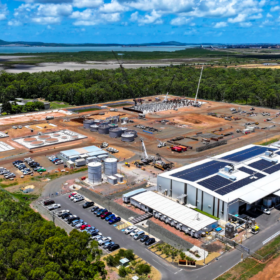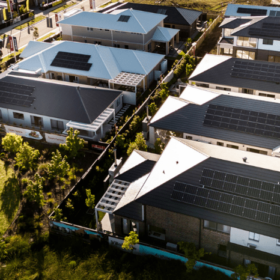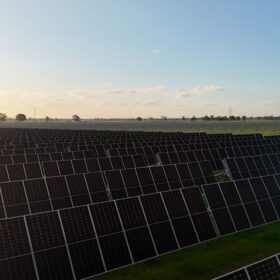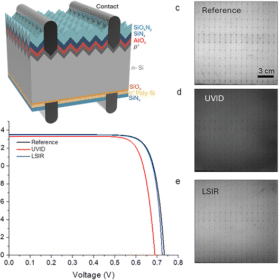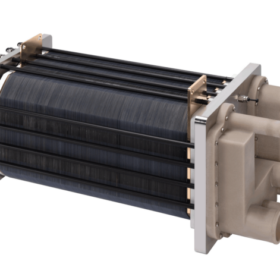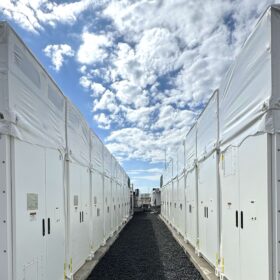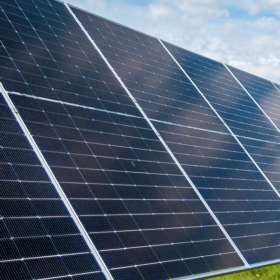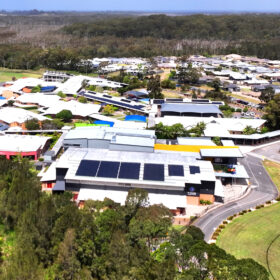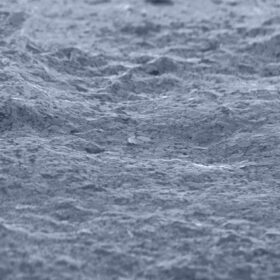High-purity alumina HPA First Project bags $75 million
AlphaHPA has received a $75 million National Reconstruction Fund Corporation investment toward delivery of its ultra-high purity alumina plant in Queensland, which will supply critical materials for lithium-ion battery manufacturing.
Turning point: renewables surge to >50% of supply, wholesale power prices plunge, grid resilient to heatwaves
There was a watershed moment for Australian energy transition this week as the Australian Energy Market Operator released its energy dynamics report for the December quarter of 2025: Renewables comprised more than half of energy supply in the quarter, driving down wholesale electricity prices by nearly half. Coal-fired generation was down 4.6% year on year, falling to an all-time quarterly low. Gas-fired generation plunged 27% to its lowest level for 25 years.
Rooftop solar hits all-time output high of 4,407 MW in Q4 2025: report
Rooftop solar generation hit an all-time high in Q4 2025, up 8.7% with an output of 4,407 MW, while also reducing daytime operational demand, contributing to battery charging, and an overall new renewable energy generation record for the National Electricity Market of 51%.
NEM welcomes 1.8 GW of new generation and storage in last quarter
A surge of new generation and storage capacity reached full output in Australia’s main grid in the last quarter with nine projects totalling 1.8 GW of new capacity progressing through commissioning and entering operation.
UNSW research reveals self-repair mechanism in solar cells
Engineers at the University of New South Wales have developed a real-time monitoring technique that reveals how silicon solar cells can self-repair following ultraviolet-induced damage, offering new insights into solar panel degradation and lifetime performance.
Siltrax secures TUV certification for hydrogen fuel cell stacks
Australian manufacturer Siltrax will push forward with the commercialisation of its silicon-based hydrogen fuel cell technology after securing the tick of approval from international testing, inspection, and certification body TÜV Rheinland.
Five trends for energy storage as global market passes 100 GW
A new report from Wood Mackenzie identifies five key trends the global research and consultancy group expects will define the energy storage industry in 2026, including supply chain restructuring and the rise of non-lithium batteries.
Pacific seeks federal tick for Queensland solar and battery project
Plans for a 250 MW solar and 350 MWh battery energy storage project proposed for Queensland’s Western Downs region are now available for public comment as developer Pacific Partnerships seeks a green tick from the federal government.
Wireless system shares rooftop solar across school campus
A new wireless, Wi-Fi-connected solar solution featuring three Sungrow 100 kW inverters is now allowing more than 300 kW of solar generation to be dynamically balanced across distribution boards throughout a school on the mid-north coast of New South Wales, significantly offsetting grid electricity use.
‘Immediate transition to copper is technically and economically feasible’
With silver prices rising, more large solar manufacturers are expected to switch to copper for cell metallization. Radovan Kopecek of ISC Konstanz tells pv magazine that he expects the entire industry to follow. Ning Song of the University of New South Wales says a small efficiency tradeoff may be acceptable if the cost savings are significant and do not introduce new reliability risks.
